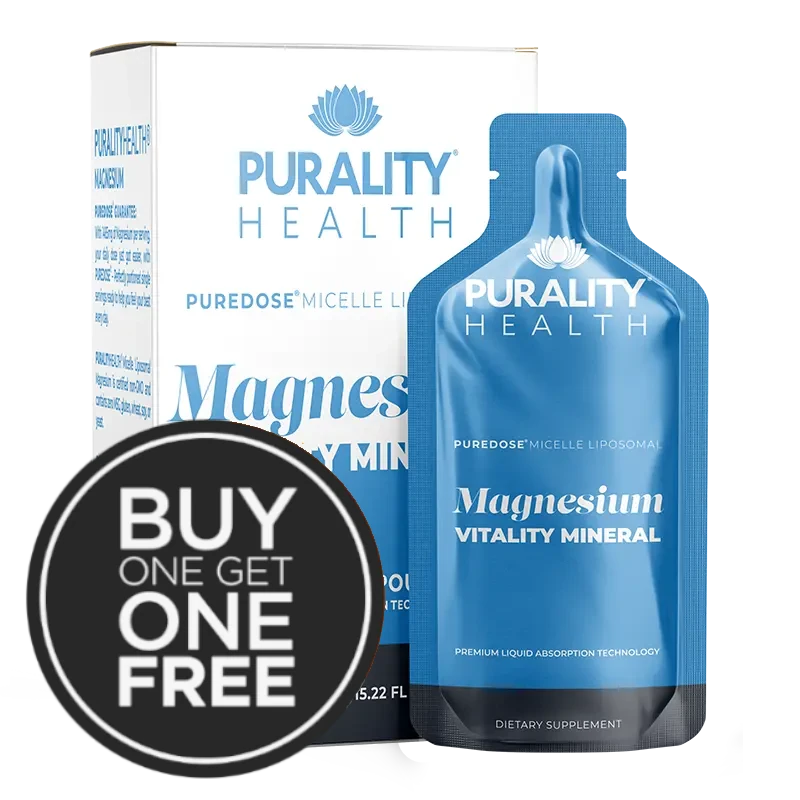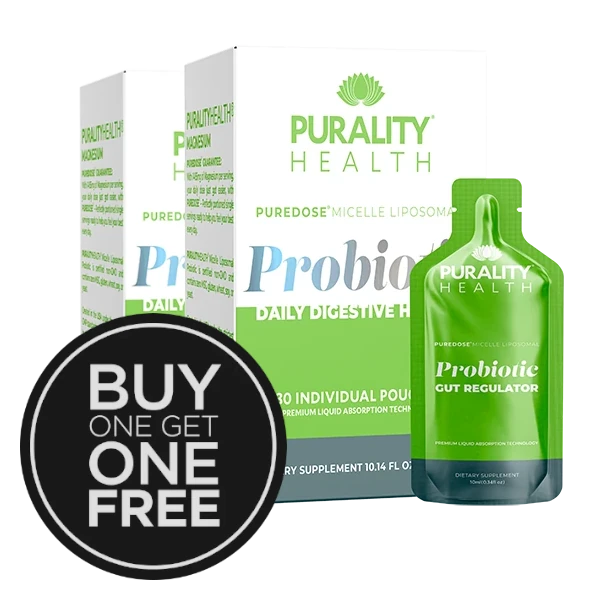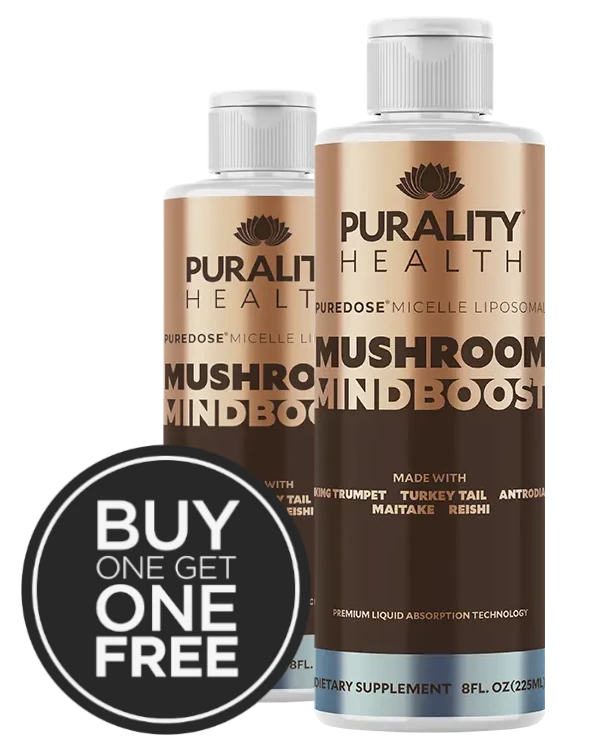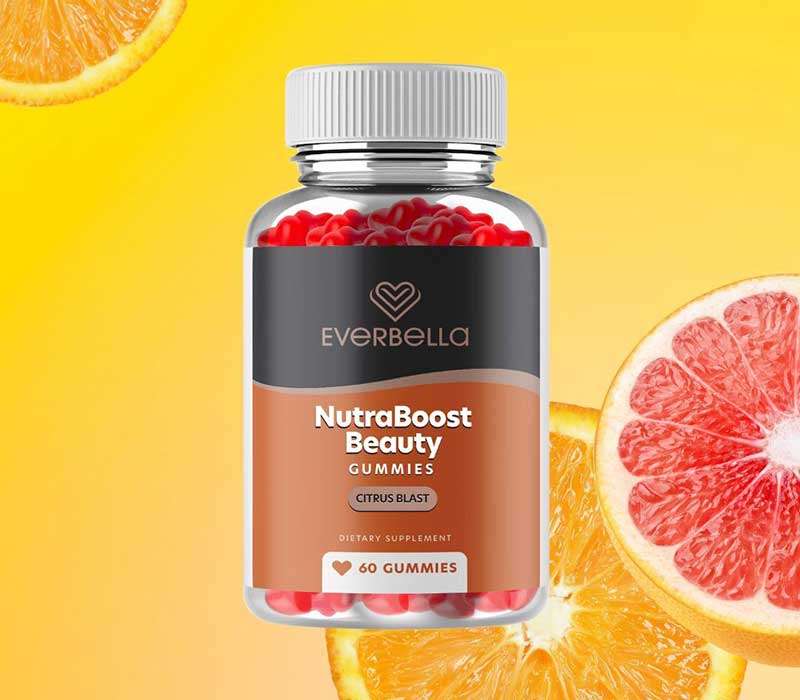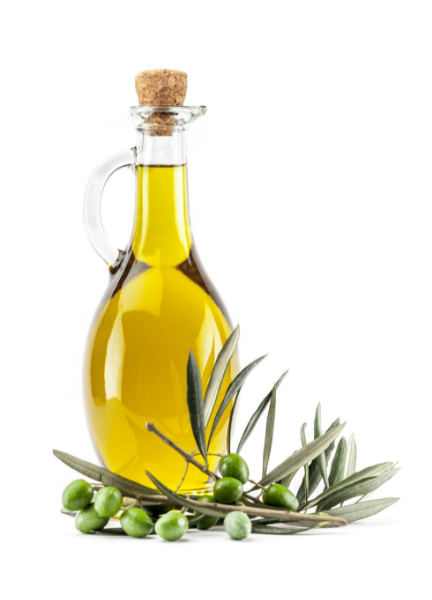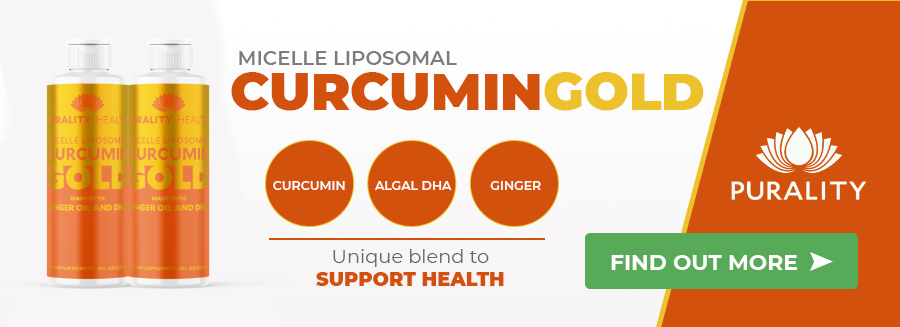Should You Cook With Olive Oil?
Olive oil on its own is quite healthy. It’s loaded with antioxidants, beneficial fatty acids, and its consumption has been linked to a healthier lifestyle. [1]
But the question is… should you cook with it?
Some people have shown concern for a few reasons. Though most of these concerns are true for many oils, we will take a look at how olive oil measures up in comparison.
A quick word about olive oil
Before we get started, we wanted to bring up something important about olive oil. When shopping for olive oil, you want to make sure to get “extra virgin olive oil”. Anything labeled just “olive oil” is more processed, possibly even blended with lower-quality oils. “Extra virgin olive oil” is made by grinding the olives into a paste and then pressing them to extract the oil.
Extra virgin olive oil has been found to be more nutrient dense than olive oil as a result. [2]
Now, onto the cooking concerns of olive oil…
Heat damage
When exposed to heat, many types of oils can become damaged. This is true for oils high in polyunsaturated fats, including most vegetable oils like soybean and canola.
When overheated, they can form various cancer-causing compounds. [3, 4]
Some oils can even emit harmful and carcinogenic compounds as vapors that can be inhaled when cooked. [5, 6]
To minimize these risks, you should only cook with oils that are stable at high heat.
Fatty acids can be either saturated, monounsaturated, or polyunsaturated.
Saturated fats, like coconut oil, are very resistant to heat, while polyunsaturated fats, like soybean and canola oil, are quite sensitive to high temperatures.
Olive oil contains mainly monounsaturated fats, which are also stable at high temperatures.
Like most oils, olive oil is made up of different types of fatty acids – 73% monounsaturated, 11% polyunsaturated, and 14% saturated. [7]
As a result, olive oil is at a low risk for heat damage.
Outside of this, there are two variables to consider when trying to determine which oils are best:
- Smoke point – this is the temperature at which oils begin to break down and turn into smoke.
- Oxidative stability – this is how the oil reacts to oxygen exposure.
Let’s see how olive oil holds up when it comes to these two factors.
Smoke point
When oils reach their smoke point, they begin to break down and – along with turning into visible smoke – form harmful compounds. 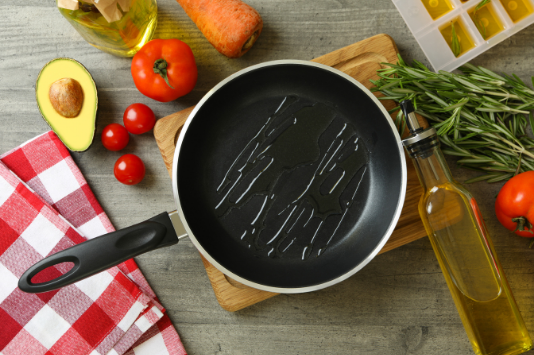
Thankfully, estimates have olive oil in a safe cooking range when it comes to the smoke point. This is true for most types of cooking methods, including pan frying.
Olive oil’s smoke point is estimated to be somewhere between 374–405°F (190–207°C).
Even then, research has found that at these high temperatures, olive oil remains relatively stable. [8]
Oxidative stability
When oils oxidize, they react with oxygen and form harmful compounds. This process is accelerated when heated.
Due to its high level of antioxidants and low content of polyunsaturated fats, olive oil holds up quite well to oxidation.
Studies done on olive oil have confirmed this. [9, 10]
Additionally, contrary to popular belief, heating olive oil won’t lead to the formation of trans fats. One study which fried olive oil eight times in a row only saw trans fat content increase from 0.045% to 0.082% – still a negligible amount.
Cooking with olive oil
Olive oil is loaded with compounds and nutrients that benefit your health. And, as you can see, cooking with it won’t diminish its health properties.
One reason you may want to cook with olive oil is to increase your intake of omega-3 fatty acids.
Here at Purality Health, our Curcumin Gold contains plant-based DHA – one of the most important omega-3 fatty acids out there.
But this isn’t the only reason why Curcumin Gold could greatly benefit your health.
>> Click Here To Learn More <<
References and resources:
- https://www.ncbi.nlm.nih.gov/pmc/articles/PMC6770785/
- https://www.medicalnewstoday.com/articles/318397
- https://pubmed.ncbi.nlm.nih.gov/21714128/
- https://pubmed.ncbi.nlm.nih.gov/8475896/
- https://pubmed.ncbi.nlm.nih.gov/16135162/
- https://www.sciencedirect.com/science/article/abs/pii/016512189290035X
- https://nutritiondata.self.com/facts/fats-and-oils/509/2
- https://www.actascientific.com/ASNH/pdf/ASNH-02-0083.pdf
- https://journals.sagepub.com/doi/abs/10.1106/1898-plw3-6y6h-8k22
- https://pubmed.ncbi.nlm.nih.gov/20678538/









